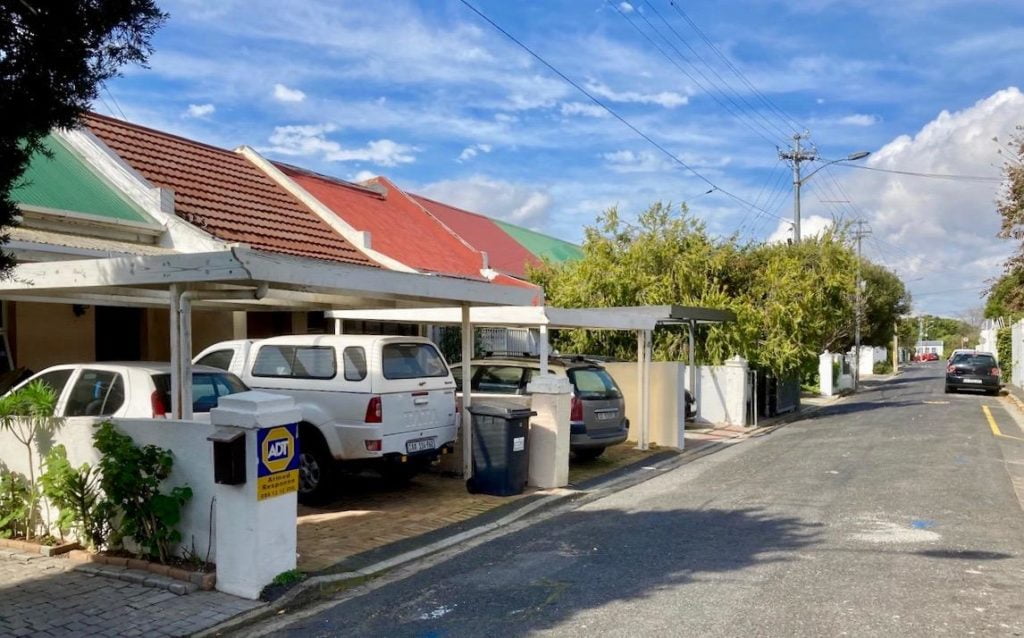There is an American saying, “You can’t fight City Hall and win!” There is also an ancient legend of a pipe-smoking pirate named Jan Van Hunks who challenged a sinister stranger to a pipe smoking competition on the slopes of Table Mountain. They smoked for days until the stranger gave in and Van Hunks was still puffing. At this point Van Hunks saw the cloven hooves and realised that his competitor was none other than the Devil himself. The angry devil incinerated Van Hunks and they both disappeared but left their smoke. Thus, the mythical origins of Devil’s Peak and for the tablecloth that appears over Table Mountain when the south-easter blows.
In the 21st century much of the murk blowing around Cape Town is generated by city bureaucracy. The battles that communities and heritage specialists have fought against the City of Cape Town and big developers have been well covered in the past: the BoKaap and the Green Point Common being but two cases in point. The current battle royal over the Two Rivers Park development is also an excellent example of what happens under The Tablecloth. The case I am highlighting is the story of one little person versus an indifferent and collusive municipal officialdom. The “little person” involved is Nodi Murphy, a long-term resident of Duke Street in the historic and colourful suburb of Observatory. In the interests of full disclosure, she is also my sister-in-law.
At one level this is simply a dispute between two neighbours. So why should it be of public importance? The reason is that the dispute reveals the weaknesses in the heritage legislation and the implicit collusion and the manipulation of legal processes within the City of Cape Town bureaucracy. At another level, there is also an underlying legal or constitutional conundrum: spatial development and heritage legislation are at odds with each other, and heritage usually loses out.
It also shows that City Hall can be beaten, albeit at considerable personal, financial, and emotional cost. In this local election year, voters should note that such arrogance is widespread in local politics, regardless of the party in power. The common denominator being the enormous influence that developers can exert on planning and public participation processes, the Two Rivers Park development intended to host Amazon’s All Africa Headquarters being a case in point.
Duke Street is a street of picturesque, terraced cottages that are part of the Observatory Heritage Protection Overlay Zone (HPOZ). It is a stone’s throw from the Liesbeek river and the Two Rivers Park. A HPOZ is an area protected in terms of the City of Cape Town Development Management Scheme. Under the previous municipal dispensation, Observatory was among several areas that were protected as Urban Conservation Areas. In 2015 these areas were redesignated as HPOZs.
In terms of the municipal bylaws, the city is required to approve the following activities in an HPOZ:
a) “any alteration, including any action affecting the structure, appearance or physical properties of a heritage place, whether by way of structural or other works, by painting, plastering or other decoration or any other means;”
b) “any development including any physical intervention, excavation, or action other than those caused by natural forces, which may in any way result in a change to the appearance or physical nature of a heritage place, or influence its stability and future well-being, including –
(i) Construction, alteration, demolition, removal or change of use of a heritage place or structure at a heritage place;
The City of Cape Town does have satisfactory laws in place, it is their implementation that is sadly wanting. These bylaws also exist in the context of problematic national and provincial legislation. Many of these entanglements have their origins, not just in the bureaucratic siloes that President Mbeki once railed against, but in the hasty drafting of the schedules delineating concurrent and exclusive competencies between the spheres of government in the Constitution. Officials who had been involved in the drafting of the constitution once told me that the Schedules were a last-minute piece of work…
Read full article here.


